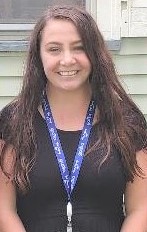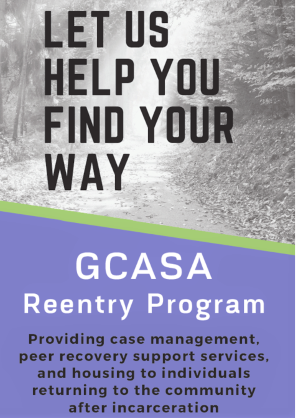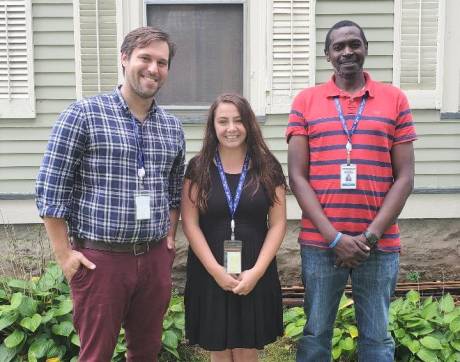Reentry grant program changes enable GCASA to reach more formerly incarcerated individuals

Trisha Allen, (photo at right), coordinator of the reentry program at Genesee/Orleans Council on Alcoholism and Substance Abuse, said those changes include reducing the length of a person’s jail or prison sentence (actual time served) from three to two months.
“Previously, we were only allowed to support people who had been incarcerated at least three months – or were on a one-month or greater parole violation,” Allen said.
GCASA has a reentry residence for up to five men in the City of Batavia and a separate reentry home for up to three women in the Town of Batavia. Potential participants must be at least 18 years old.
Allen also reported that the geographic area for those to access GCASA’s program has been expanded from Genesee and Orleans counties to Livingston, Wyoming and other neighboring counties.
Started about three years ago, GCASA’s Reentry Program has provided numerous services to around 60 people, taking a “person-centered peer approach,” Allen said.
“We focus on the participant’s self-identified needs, goals, preferences and strengths, which means that each person’s process and experience may look different,” she explained. “Typically, we offer housing from three to six months.”
Allen emphasized that the goal of the program is to expand substance use disorder treatment, recovery and reentry services for sentenced adult ex-offenders with SUD, who are returning to their families and community following their incarceration.
She added that sex offenders and convicted arsonists are not eligible for reentry housing, but GCASA does support those individuals through other programs while living in the community.

After establishing eligibility and concluding the intake process, men and women immediately are moved into housing, whether it be at GCASA’s facilities or at emergency housing provided by the Department of Social Services or more permanent housing.
The list of services provided include applying for benefits at DSS if needed, securing food, applying for health insurance, setting and attending a substance use disorder assessment appointment, obtaining identification if needed, setting physical and/or mental health appointments, and discussion a plan for education, employment, income, family and other priorities.
“It’s important to point out that we also provide case management on a 1-to-1 basis and 24-hour peer recovery support,” Allen said. “Beyond that, participants have access to all of GCASA’s counseling, treatment and recovery services – including rapid access to Medication Assisted Treatment, Medication for Opioid Use Disorder, detoxification, residential, inpatient referrals and The Recovery Station (social programs).”
Reentry programs, for many years a part of the state’s Department of Corrections operations, have become popular throughout New York as a service of nonprofit, religious, for-profit and governmental agencies.
At GCASA. Allen’s staff consists of case managers Jason Rolle and Erin Cornell and assistants Chester Shivers and Taylor Peck.
“We’re constantly looking to make connections with the local jails and prisons and have been working with the parole and probation offices and DSS since the program’s inception,” Allen noted. “WE just started a peer-run support group at the Orleans County Jail on Fridays.”
Allen said that GCASA has openings at both the men’s and women’s residences. Referrals to the program can be made by contacting her at tallen@gcasa.org or 585-813-6570.
Disclosure: Mike Pettinella is the publicist for GCASA.

